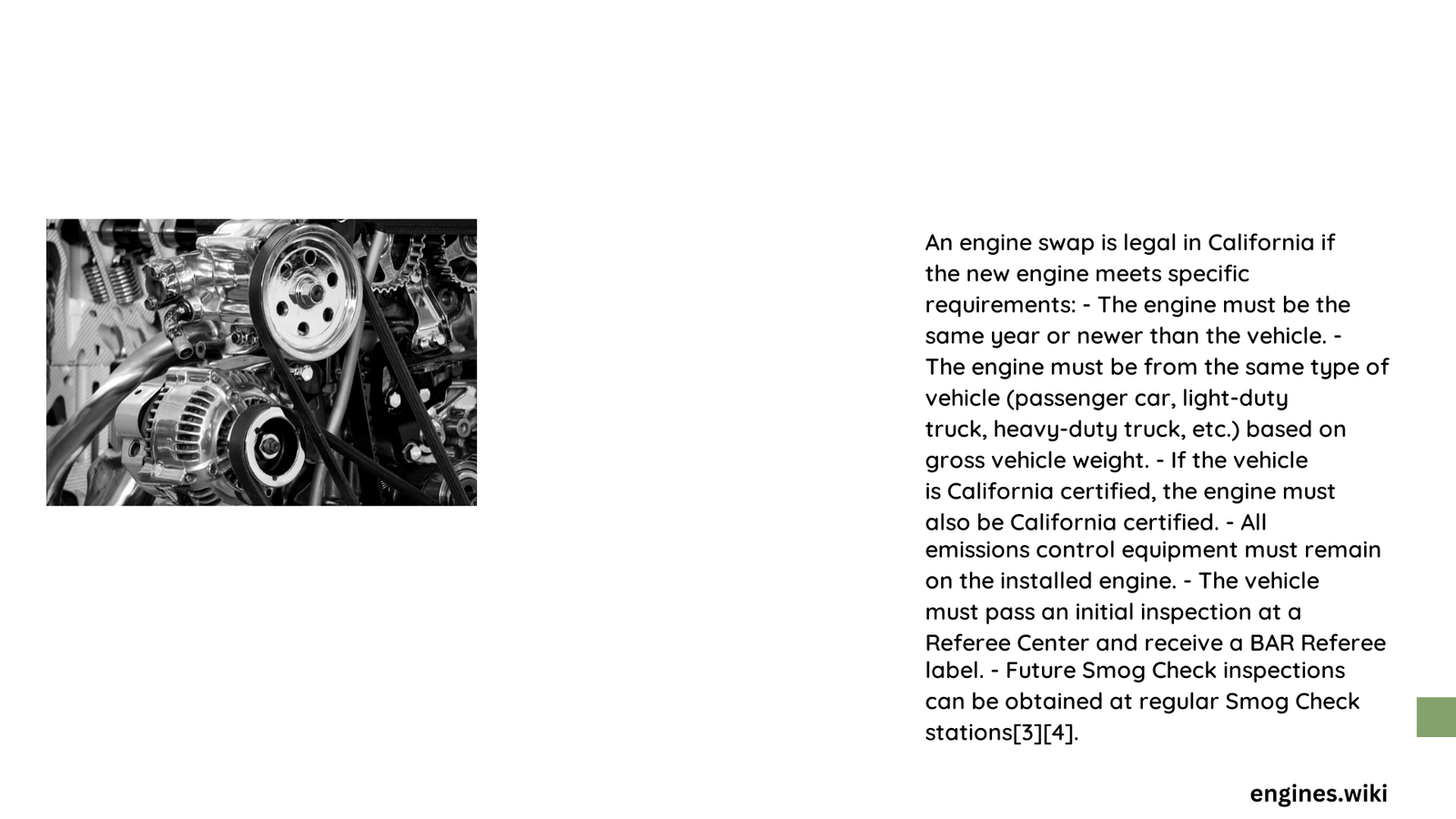Engine swaps in California are legal but require strict adherence to complex regulatory standards set by the California Air Resources Board (CARB) and Bureau of Automotive Repair. Vehicle owners must navigate detailed emissions control requirements, vehicle classification rules, and mandatory inspection processes to ensure their engine modification remains compliant with state regulations.
What Makes an Engine Swap Legal in California?
California has some of the most stringent automotive modification laws in the United States, particularly regarding engine swaps. The legality of an engine swap depends on several critical factors:
What Are the Primary Compliance Requirements?
- Engine Compatibility
- Must be same year or newer than the original vehicle
- Must be from the same vehicle classification
-
Must match gross vehicle weight specifications
-
Emissions Standards
- All original emissions control equipment must be retained
- New engine must meet or exceed California emissions certifications
- Must use California-certified engines for California-certified vehicles
How Do Emissions Regulations Impact Engine Swaps?
| Requirement | Details | Compliance Level |
|---|---|---|
| Vehicle Type | Passenger Car/Light Truck | Strict Match |
| Emissions Equipment | Complete Original Configuration | Mandatory |
| Certification Standard | CARB/EPA Approved | 100% Required |
What Documentation Is Needed for a Legal Engine Swap?
Vehicle owners must prepare:
– Original vehicle registration
– New engine specifications
– Proof of emissions compliance
– Detailed installation documentation
– Proof of professional installation (recommended)
What Is the Inspection Process?
The California Bureau of Automotive Repair mandates a comprehensive inspection:
– Schedule appointment at official Referee Station
– Complete visual and functional vehicle inspection
– Undergo emissions testing
– Receive BAR Vehicle Identification Label
– Pass future standard smog checks
What Are Potential Challenges?
Challenges in completing a legal engine swap include:
– High compliance costs
– Complex regulatory requirements
– Limited engine swap options
– Potential need for specialized professional assistance
How Much Does a Legal Engine Swap Cost?
Cost breakdown:
– Engine purchase: $2,500 – $10,000
– Installation labor: $1,500 – $4,000
– Emissions compliance modifications: $500 – $2,000
– Referee inspection fee: Less than $40
What Happens If Regulations Are Not Followed?
Consequences of non-compliance:
– Vehicle registration denial
– Significant fines
– Required vehicle restoration
– Potential legal complications
Pro Tips for Successful Engine Swap
- Consult CARB-certified mechanics
- Document every modification
- Use California-specific parts
- Maintain detailed records
- Budget for comprehensive compliance
Conclusion

While engine swaps in California are legal, they require meticulous planning, significant financial investment, and strict adherence to state regulations. Vehicle owners must prioritize emissions compliance and professional guidance to successfully navigate the complex modification landscape.
